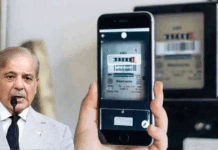In an era where cybersecurity threats are ever-present, iPhone users find themselves increasingly targeted through sophisticated methods known as password reset and MFA (multi-factor authentication) bombing attacks. These attacks, often overwhelming users with nonstop notifications and calls, aim to exploit users to gain unauthorized access to devices.
Understanding the Threat
Often referred to as fatigue attacks, these hacking attempts flood your iPhone with relentless Apple ID password reset prompts. This tactic not only disrupts usability but also seeks to wear down the user’s vigilance. Highlighting a case study an iPhone user recounted an experience where his device became nearly inoperable due to these unending notifications.
Last night, I was targeted for a sophisticated phishing attack on my Apple ID.
This was a high effort concentrated attempt at me.
Other founders are being targeted by the same group/attack, so I’m sharing what happened for visibility.
🧵 Here’s how it went down:
— Parth (@parth220_) March 23, 2024
The assault intensifies when the attacker appraoches as an Apple representative. Leveraging spoofed phone numbers that appear legitimate, these con-employees present themselves convincingly, using personal details skimmed from the internet to boost their credibility. Such tactics can deceive even the most discerning individuals, leading them to involuntarily compromise their own security.
Proactive Measures to Avoid Being Compromised
- Question the legitimacy of these calls: Always be skeptical of such calls, even if they appear to come from a familiar company like Apple. Remember, Apple typically does not initiate calls to address issues without a prior request from the customer. If you receive such a call, hang up, and dial the official customer service number yourself to verify any claims made.
- Be cautious with password reset prompts: If bombarded with password reset notifications, consistently select “Don’t Allow.” These notifications, although they mimic official alerts, are often tactics employed by attackers to trick you into compromising your device.
- Modify contact information judiciously: As a measure of last resort, consider changing the phone number associated with your Apple ID to stop the onslaught of notifications. Be aware, though, this could temporarily disrupt services like iMessage and FaceTime.

Educate Yourself and Stay Updated
Platforms like 9to5Mac offer detailed guides on combating these MFA bombing attacks. Staying informed through reliable sources can provide you with the knowledge and tools necessary to protect your privacy and security.
By adopting these defensive practices, you ensure that your device remains secure, thwarting attackers and maintaining control over your digital life. Remember, vigilance and informed action are your best defenses against these increasingly common cyber threats.
Stay tuned to Brandsynario for the latest news and updates.





































